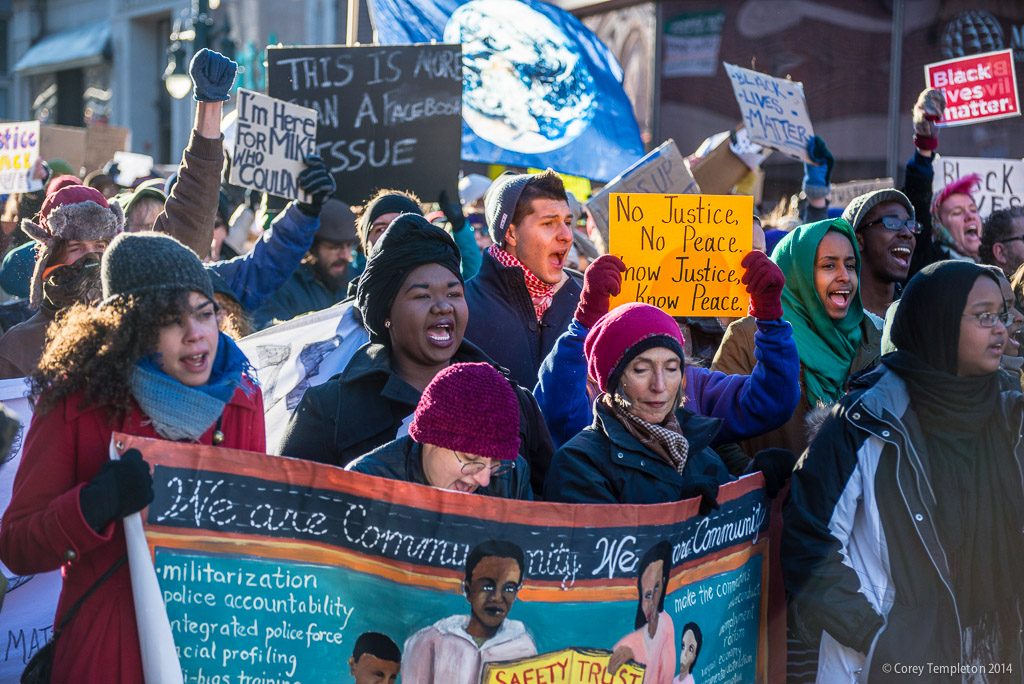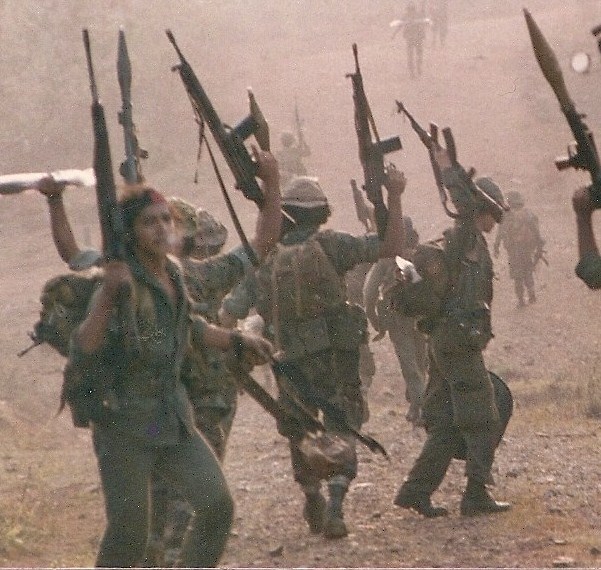
Consequences of Excluding Armed Actors from Peace Negotiations
The exclusion of some rebel groups from peace negotiations can perpetuate civil war, rather than hastening a resolution.
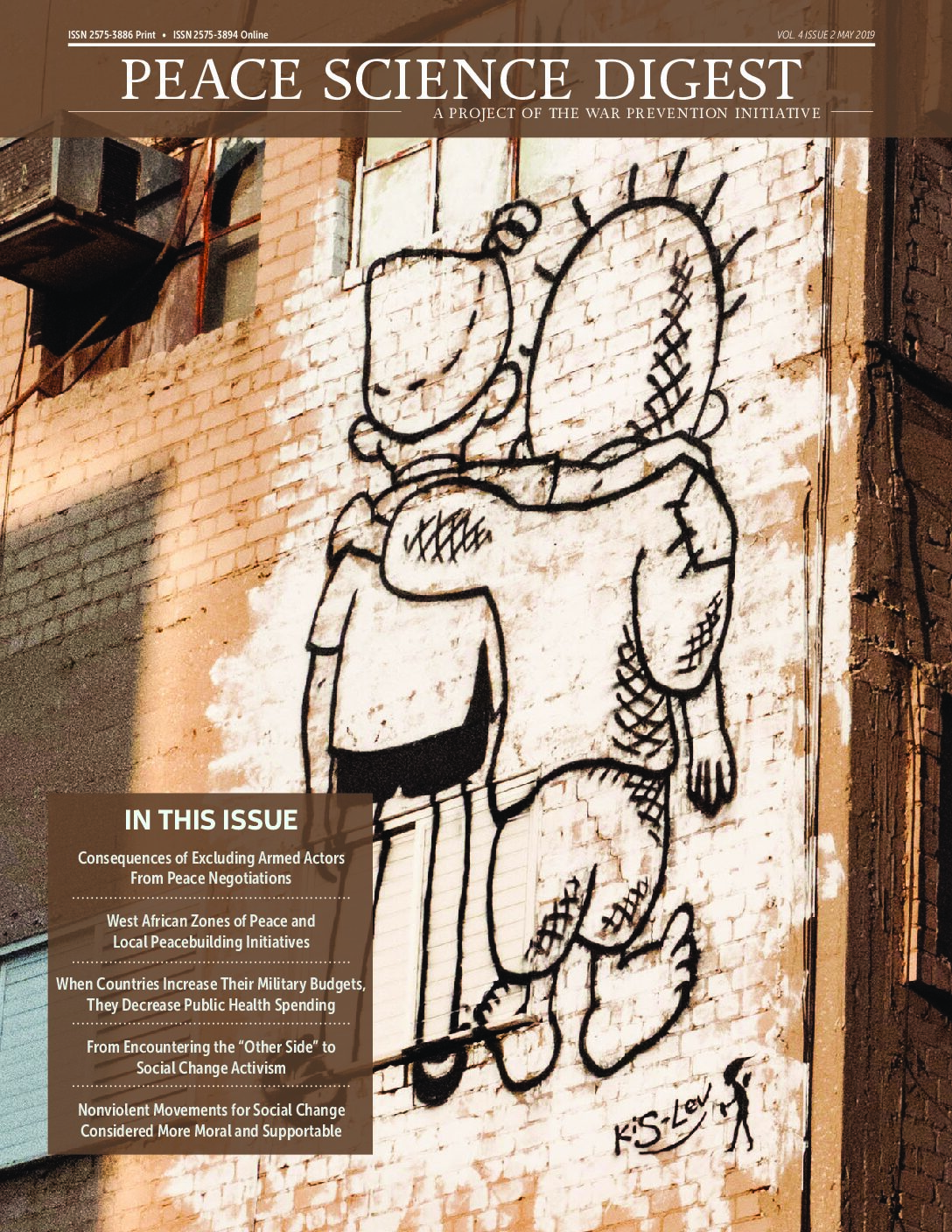
Volume 4, Issue 2
In this issue, some of the articles focus on intractable conflicts, like the Israeli-Palestinian conflict, or civil wars of the recent past, like Sierra Leone or Côte d’Ivoire. While conflict is persistent in these settings, there are examples of peacebuilding at the interpersonal and local levels. The choice between violence and nonviolence is highlighted in two other articles, though in quite different contexts. Research conducted in Iran finds that nonviolent resistance garners more support than violent resistance does even after the previous failure of a nonviolent movement. Other research reveals that the inclusion of armed groups in negotiations can move them away from the use of violence, while their exclusion makes a return to violence more likely. Additionally, national governments continue to play a powerful role in shaping outcomes for peace and security, from decisions about whether to participate in negotiations with armed groups to decisions about how much to allocate towards defense spending.
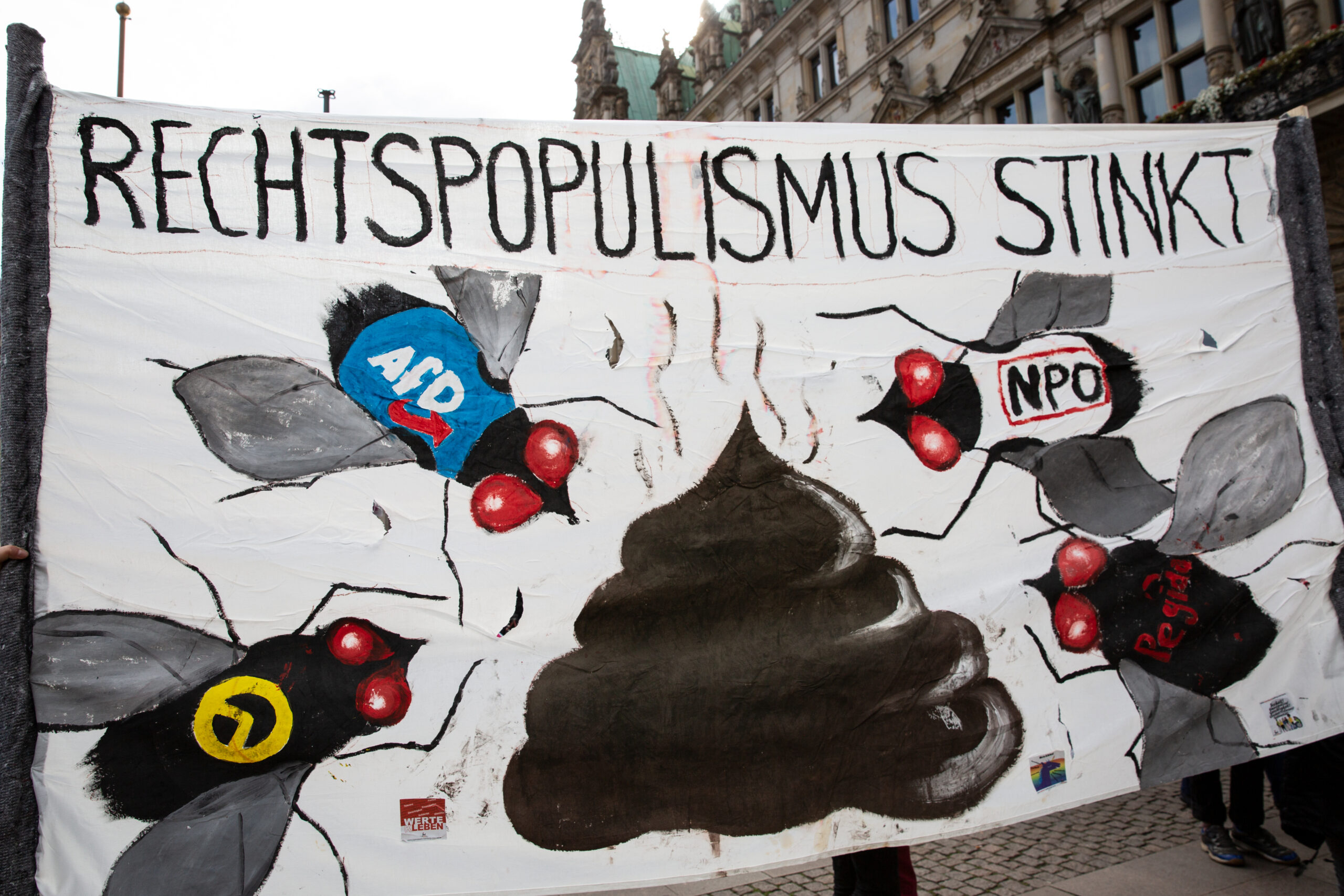
Making Civil Resistance Work against Rightwing Populism
The focus of civil resistance movements on ousting rightwing populist leaders is counterproductive because it plays into narratives of “us vs. them” and hampers efforts to gain broad-based support by polarizing supporters and detractors of rightwing populism.
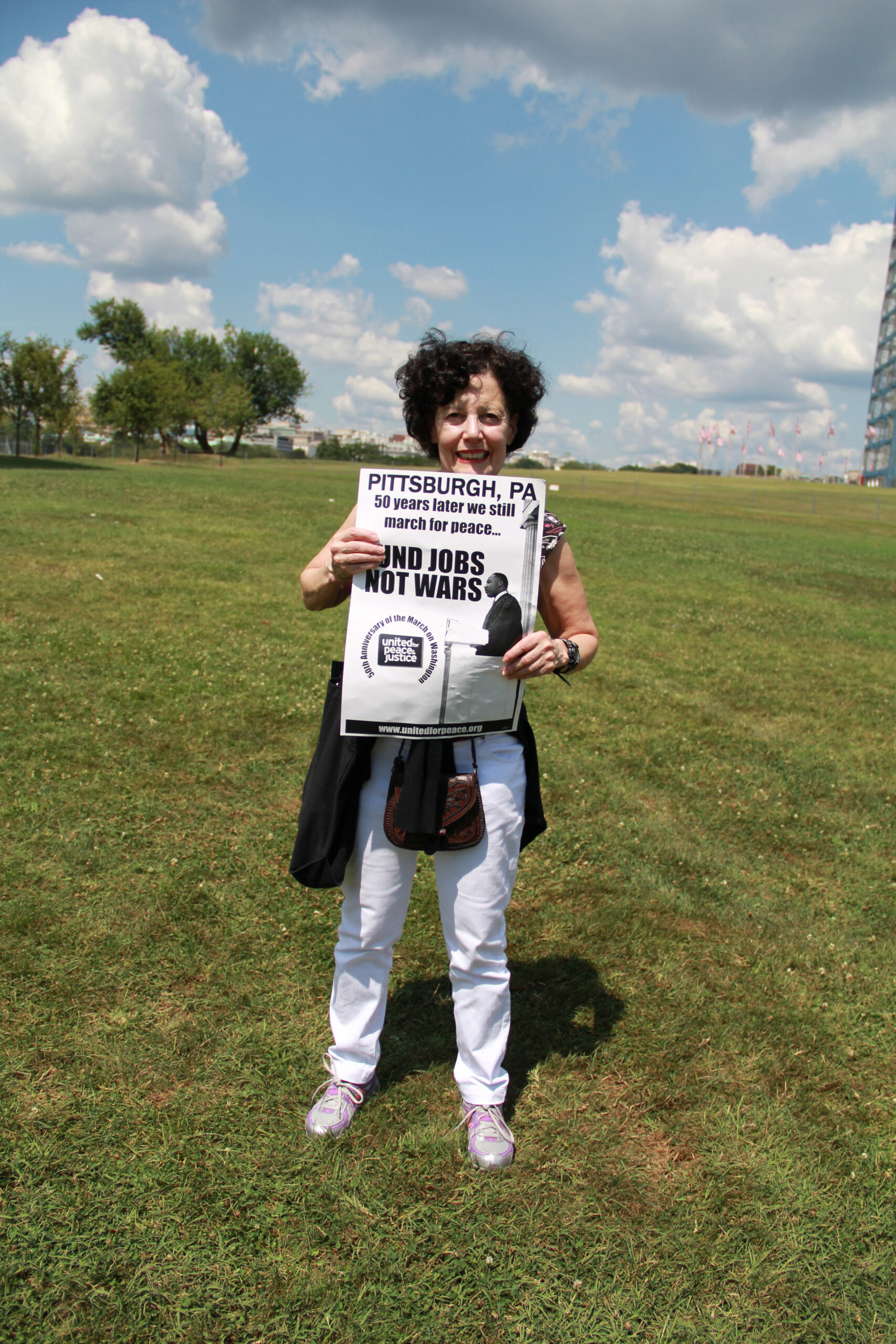
More Women in Government, Less Corruption, More Peace
When governments are less corrupt and have high levels of women’s participation, they are better able to promote and support peacebuilding.
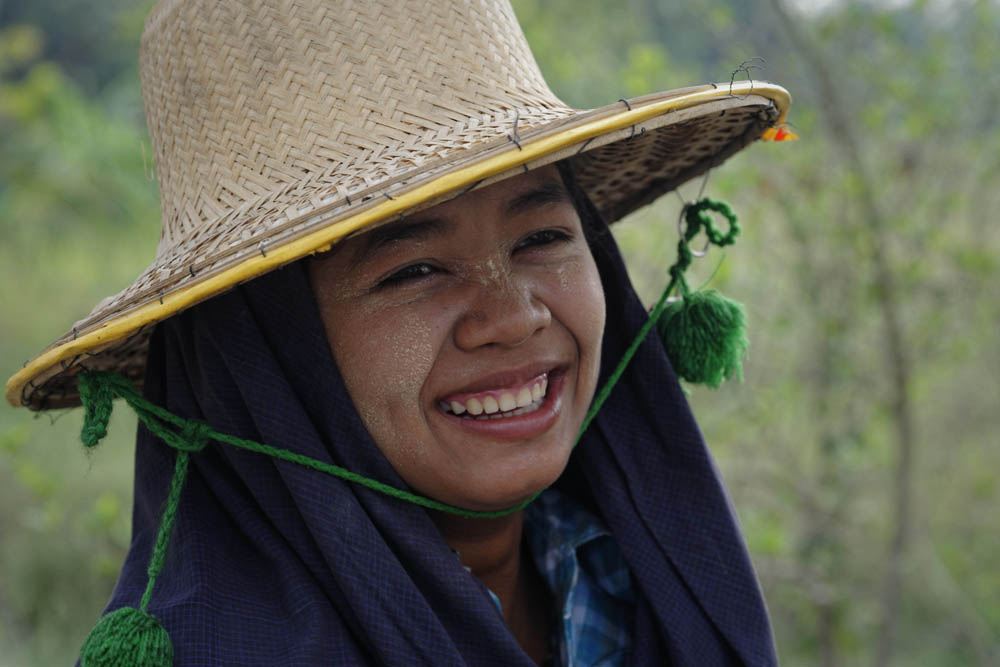
Women’s Ethnic Organizations, Representation, and Informal Peacebuilding in Myanmar
Women play a crucial role in building peace at the grassroots level in Myanmar, even if they are not represented adequately in the formal peace talks.
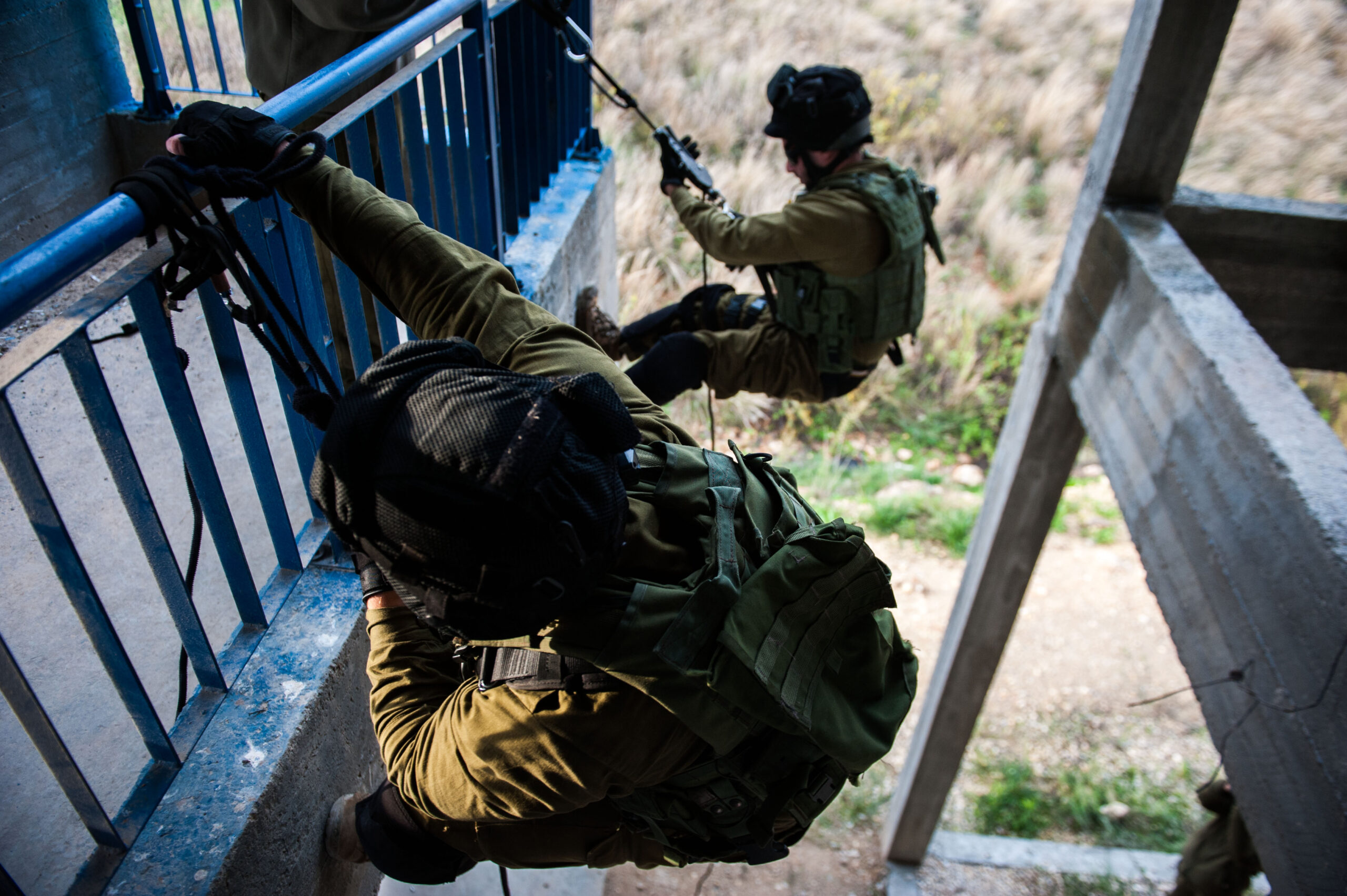
Assessing the Shift from Liberal Peacebuilding to Counterterrorism and Stabilization Operations
More militarized UN peacekeeping mandates do not address the root causes of conflict and can contribute to cycles of violence and terrorist recruitment.
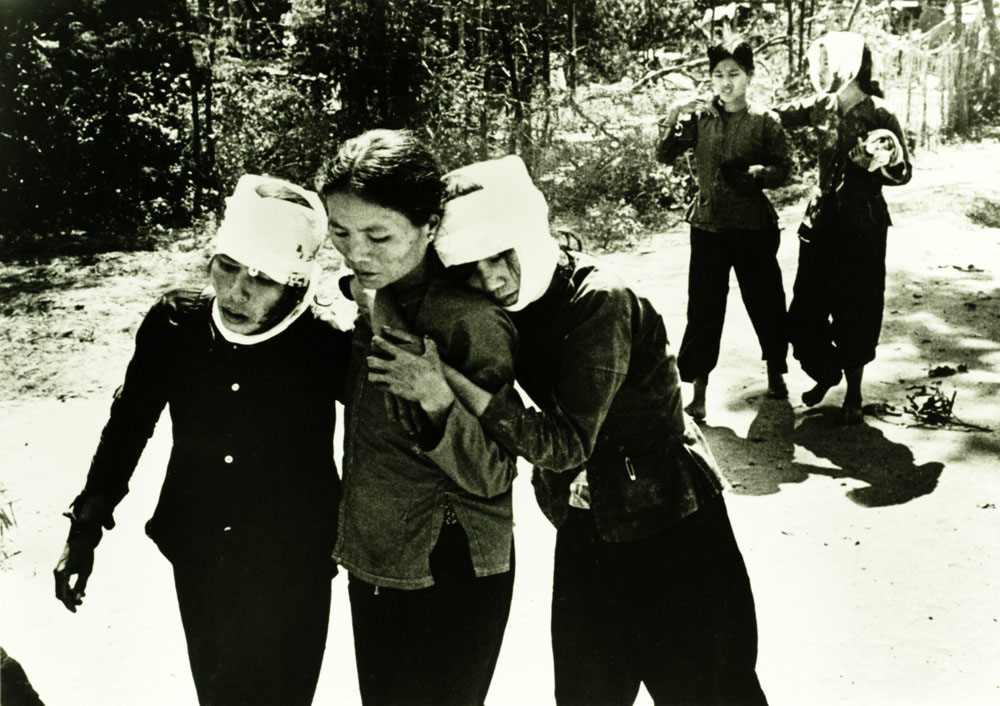
More Civilian Casualties, Less Support for Military Action
People care about deaths in war, whether the killing of their own soldiers or the killing of foreign civilians, which affects their support for military action.
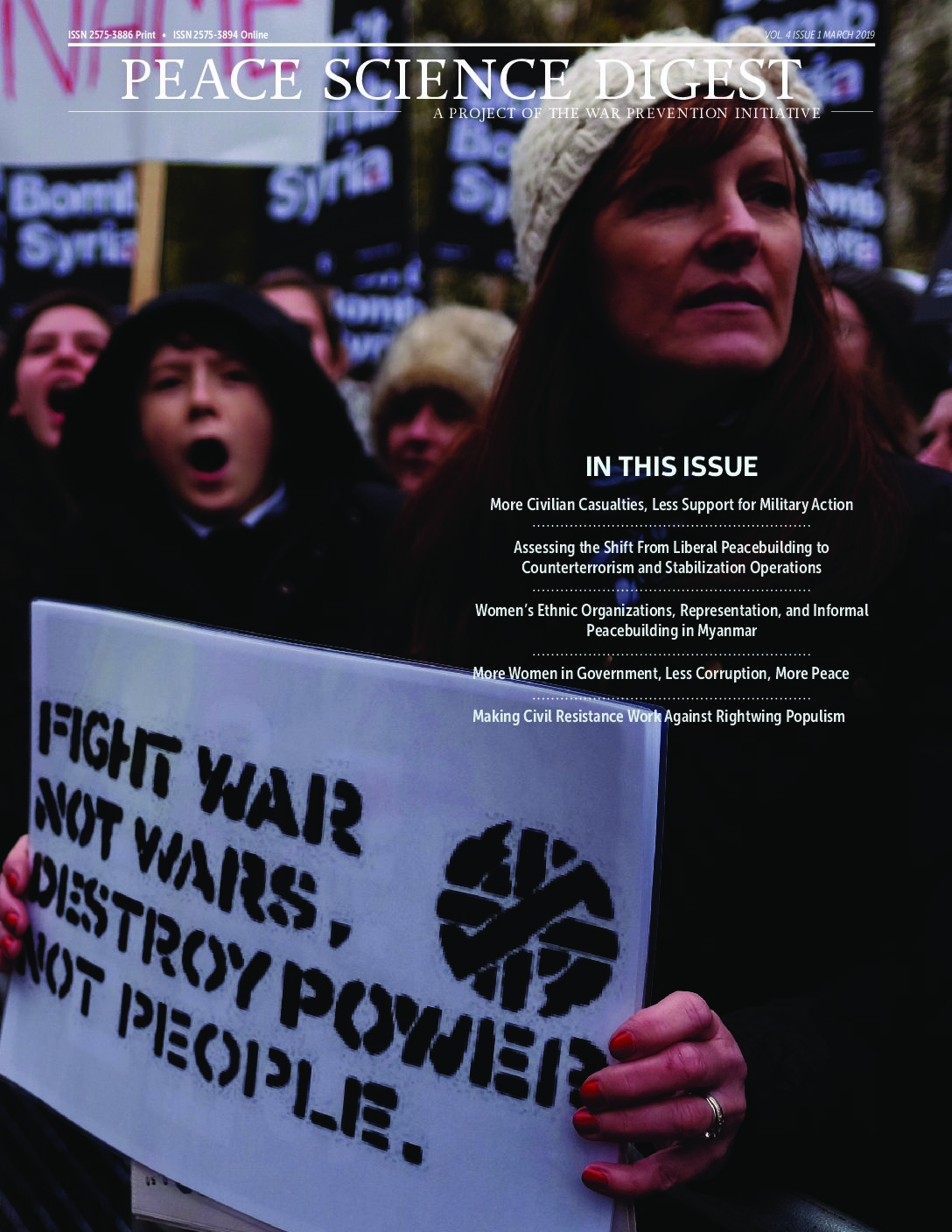
Volume 4, Issue 1
In this issue, each of the articles selected either takes a critical approach to its research question or incorporates a careful perspective on the various racial, ethnic, gender, or other identities at play in its analyses. The first article shows that support for military action decreases when civilian causalities increase. The second criticizes the shift from peacebuilding to stabilization and counterterrorism operations. The third reviews women’s informal participation in the peace process in Myanmar, and broader implications from barriers to their formal participation. The fourth suggests a link between women’s participation in government, reduced levels of corruption, and higher levels of peace. The fifth details strategies for leftist civil resistance movements to confront rightwing counter-protests. The results of this critical approach empower us to see beyond our assumptions, to be surprised by the results of our work, and to view events of the world with a dash of skepticism.
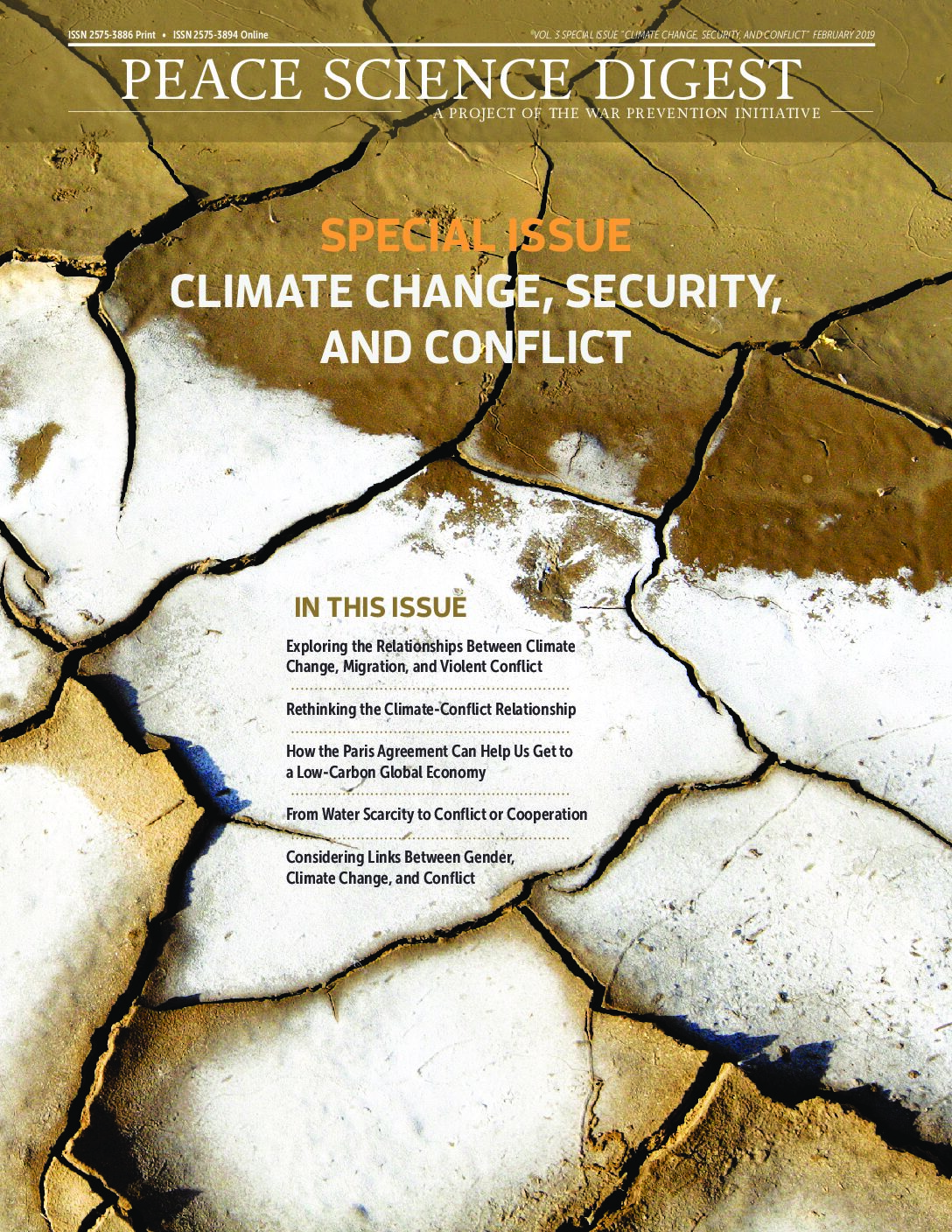
Volume 3, Special Issue: Climate Change, Security, and Conflict
We hope the research discussed in this special issue informs a cascade of activism and policy-making to avert the worst eventualities of climate change and to create a world that is more secure and more just for all of us.
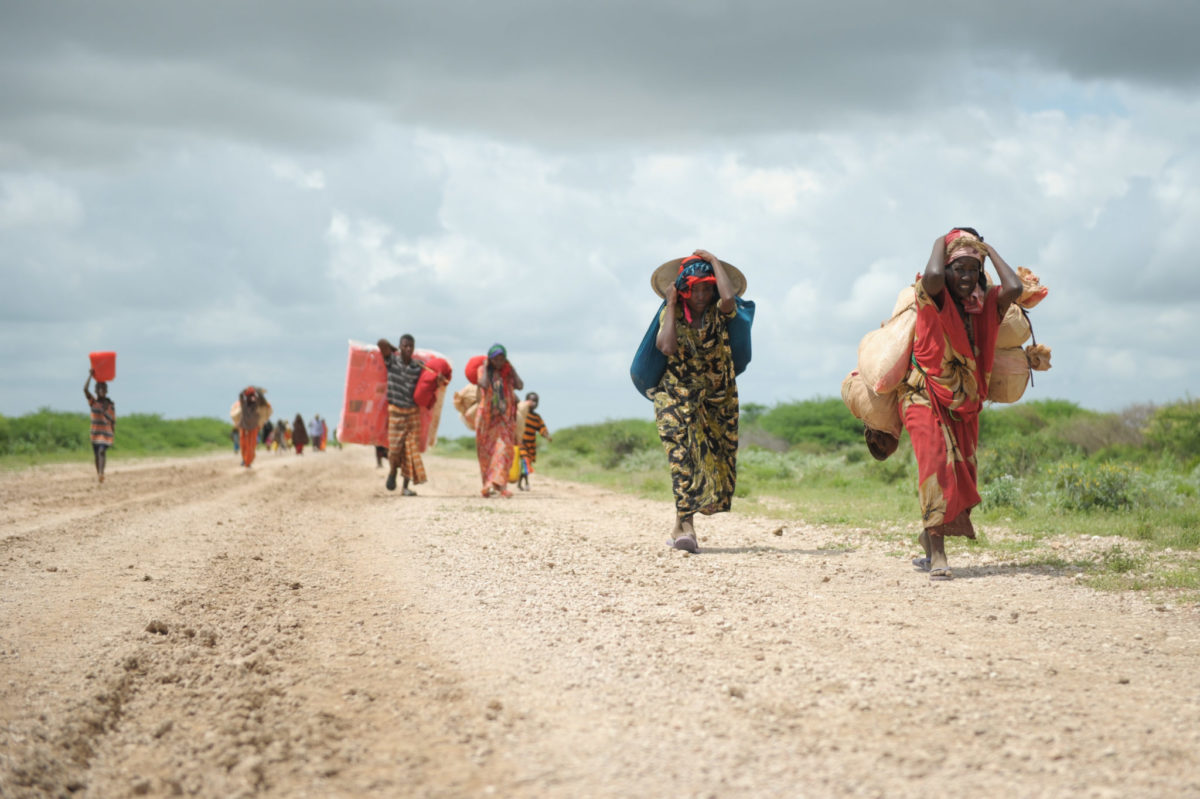
Exploring the Relationships Between Climate Change, Migration, and Violent Conflict
When climate change is framed as a security threat, it is often due to assumptions about how changes in the climate will cause mass migration, which will itself precipitate violent conflict.

Rethinking the Climate-Conflict Relationship
In 2016 and 2017, Eastern Africa experienced a drought that most experts believe to be linked to global climate change.
